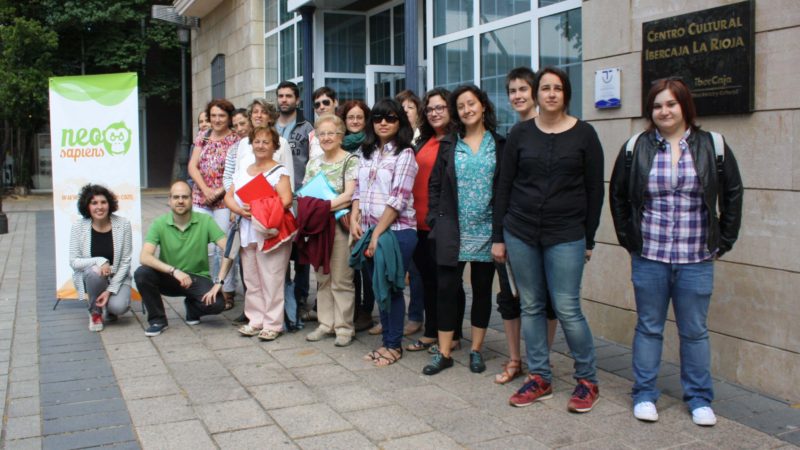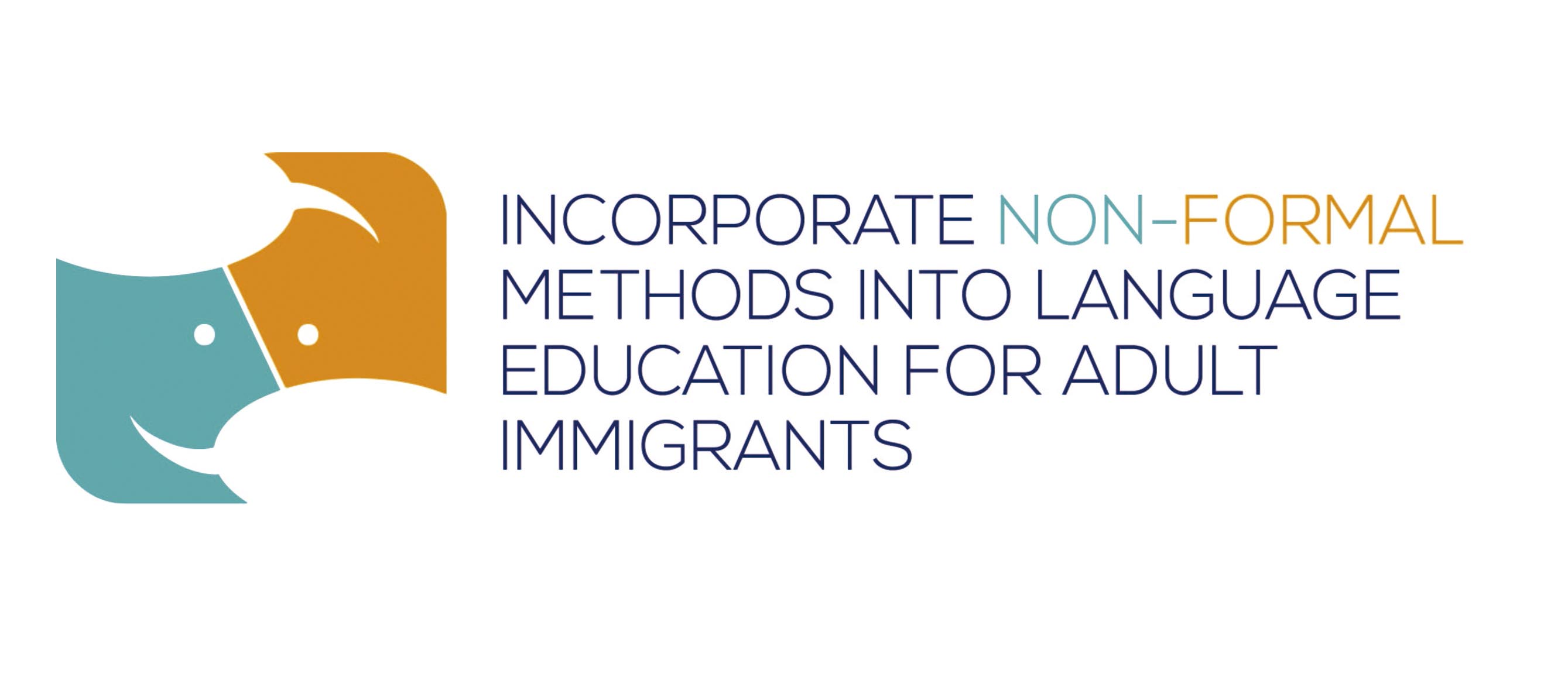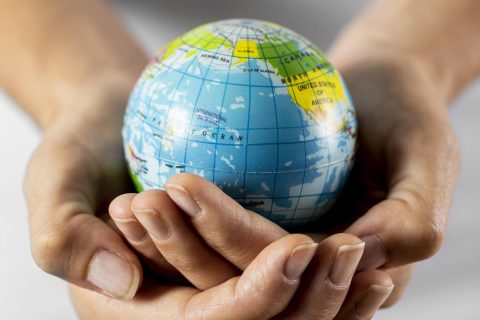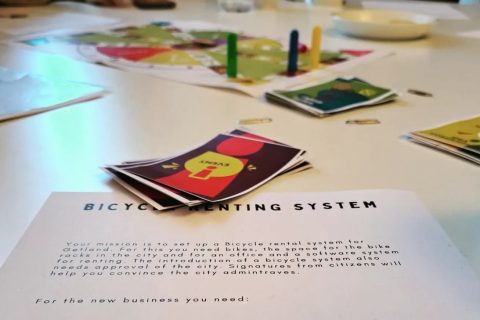
The project “Incorporate Non- Formal Methods into Language Education for Adult Immigrants” is a transnational initiative between Cyprus, Greece and Spain, coordinated by Neo Sapiens in La Rioja. The project aimed at promoting intercultural and second language education for migrants and refugees through non-formal methodologies. Subsidised by the Erasmus+ programme of the European Commission, the project not only worked on developing new materials for second language learning and linguistic and cultural adaptation to the environment of migrants in their communities, but also on creating a network at local and European level between professionals, social entities and public administrations working in training programmes in this field and with the aim of developing joint actions between them. During the whole duration of the project, Neo Sapiens coordinated and carried out for professionals and educators in this sector workshops for the development of materials, cooperation spaces and provided their entities with intensive training for the capacity building of their staff in the teaching of languages and interculturality through non-formal methodologies.
Thanks to this transnational collaboration between the countries involved in the project, different exercises and products could be developed, tested and edited in cooperation with non-profit organisations, which later adapted them to their realities and contexts. For more information on the objectives, calendar of activities and results or products developed during this project, please consult the sections at the bottom of this page.
The European Commission’s support for the production of this publication does not constitute an endorsement of the content, which reflects the views only of the authors, and the Commission cannot be held responsible for any use which may be made of the information contained therein.
- Final manual of the project on incorporating non-formal methodologies in language teaching for migrants and refugees (English): click here.
- Activities extracted from the manual on incorporating non-formal methodologies in language teaching for migrants and refugees (Spanish): click here.
- Activities extracted from the handbook on incorporating non-formal methodologies in language teaching for migrants and refugees (Greek): click here
- To increase the use of non-formal education in second language learning and teaching for adults.
- To develop educational materials adapted to migrants and refugees living in the communities participating in the project.
To foster mutual learning among professionals working in language teaching for adult migrants.
To enhance networking at local and European level between organisations involved in intercultural education for groups and groups at risk of exclusion and with limited access to training opportunities. - To contribute to the visibility of European programmes aimed at funding transnational initiatives for education and social integration.
- First transnational coordination meeting in Greece (January 2016).
- Meetings with social organisations, public administrations and educational centres to present the project and collect good practices (May to June 2016).
- Working groups to analyse the theme of the project and the needs to be covered (June 2016).
Workshops with professionals and educators from the third sector (July 2016). - Second transnational coordination meeting in Cyprus (November 2016).
Edition of the educational materials of the project by its partners (November 2016 to January 2017). - Meetings with social organisations, public administrations and educational centres to present the results of the project (May to July 2017).
- Multiplier and dissemination events (May to June 2017).
- Training courses for adult educators with the material developed by the European partners of the project (June to July 2017).
- Final coordination meeting in Spain (August 2017).






